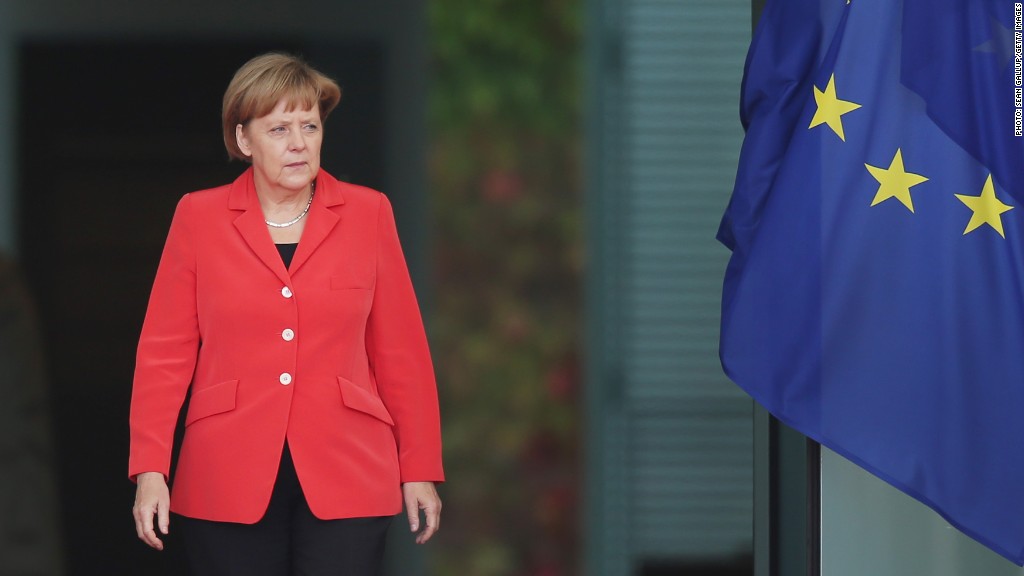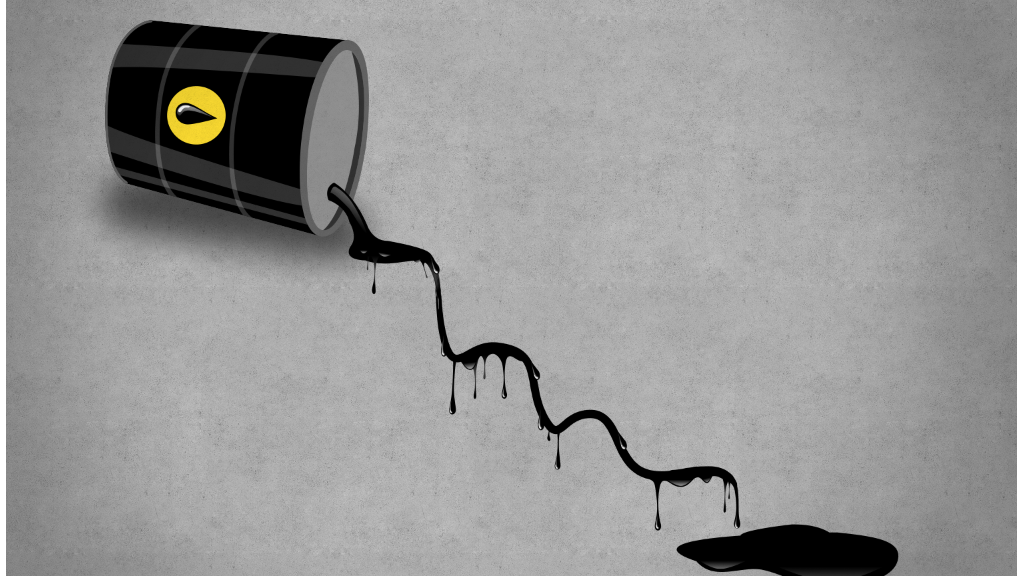
Germany risks slipping into its third recession since the global financial crisis, piling pressure on Europe to do more to stimulate its stagnant economy.
Tensions with Russia, slowing global growth and falling consumer confidence mean the region's biggest economy struggled to grow in the past three months, and may turn out to have shrunk for a second quarter running.
The mood among German businesses has sunk to its lowest level since April 2013, and expectations for the next six months are the weakest they've been since December 2012.
Across the eurozone as a whole, data released Monday showed that economic sentiment dipped in September for a fourth month in a row.
"Even the economic powerhouse Germany's sentiment fell, putting it in the frame for a third recession since 2008," said Angus Campbell, senior analyst at FxPro.
Data on prices and the labor market added to the gloom Tuesday.
Prices rose by just 0.3% in the eurozone in September -- the weakest inflation has been for nearly five years. And more than 18 million people are still looking for work across the 18 eurozone states.

Most troubling for policymakers at the European Central Bank will be the decline in core inflation, which strips out volatile prices for food and energy.
That will revive fears that Europe could slump into a vicious circle of falling prices and stagnation.
With France's economy flat lining, and Italy's contracting, much depends on whether Germany can bounce back.
The German government has spurned calls from within Europe and beyond to use its budget surplus to boost growth, emphasizing the need for more reforms.
In the absence of fiscal stimulus, pressure will build on the European Central Bank to go all in with a Federal Reserve-style program to buy government bonds.
Less than a month ago, ECB President Mario Draghi cut interest rates as low as he could, and unveiled plans to buy some loans and mortgages to stimulate bank lending. It was the central bank's second dramatic intervention since June.
Draghi will publish details of the limited asset purchase program Thursday. But Europe's weak prospects mean he's likely to have to do more -- at some point.
Markets seem to be preparing for a further divergence in policy between the ECB and the Fed, which is close to turning off the QE flow. The euro tumbled further against the dollar Tuesday -- losing 0.6% to trade at $1.26.
It has now fallen 9% since May, a sharp move that should bring relief to European exporters and eventually feed through into higher import prices, helping to combat the risk of deflation.


